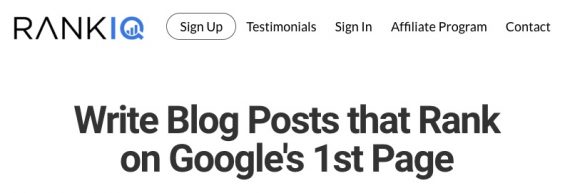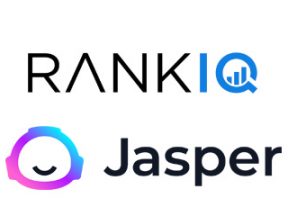As artificial intelligence evolves, so too does its potential to help businesses improve their organic search rankings.
Content is a key part of search engine optimization. Optimizing content is the process of ensuring it appeals to humans and search engine bots. The goal is for Google and other search engines to rank the content so that humans can discover it, engage with it, and eventually purchase goods and services because of it.
Employing AI
Artificial intelligence cannot yet take over the content optimization process. But it can help with keyword research, idea generation, and basic writing.
Keyword research is critical in content optimization, as it identifies the words and phrases that prospects are searching for. AI-based tools can uncover new and trending keywords and the ease or difficulty of ranking for them and others.
AI can help generate ideas by analyzing your existing content and trends in your industry. Take RankIQ, for example. It’s a human and AI-powered SEO tool providing keyphrase research and content ideas. Combined with other AI tools, such as Jasper, it can streamline content marketing and SEO.
Of the many tasks for AI, writing is perhaps the most controversial. Multiple AI-based writing tools claim to produce quality content. They cannot yet replace humans in my experience — or even come close in most cases — but they are helpful.
One such tool is Quill, by Narrative Science. Quill combines data and artificial intelligence to generate reports, articles, and other types of content. Forbes, the Associated Press, and other publications use it. In late 2021, Salesforce acquired Narrative Science and Quill, but not before the latter demonstrated its value for writers.

RankIQ, a human and AI-powered SEO tool, provides key phrase research and content ideas.
SEO AI
In a sense, AI content for SEO is AI versus AI. Google uses artificial intelligence to help algorithms discern searchers’ intent, not just their keywords, and rank pages accordingly.
So AI is driving Google’s goal of producing the best search results for users. That is good news for companies creating the best possible content for a topic. But it doesn’t help folks who don’t know what to write about, what to emphasize, and how much.
Over time, SEO practitioners and content marketers will likely need AI to keep up in the organic-search arms race. Manually tracking keywords in a spreadsheet will become ineffective, in my estimation. The SEO content creation workflow will rely on AI.
Many AI Tools
Adding AI-powered content to an SEO workflow will require experimenting. I’ve mentioned three AI-based tools — RankIQ, Jasper, and Quill — but there are many more for SEO, including Copy.ai, Frase, Copysmith, Article Forge, Zenbrief, and SEMrush Writing Assistant, among others.
There is no winning software in AI content for SEO. There is no perfect workflow. Rather your next step should be trying combinations of these tools to learn which has the greatest impact on your company’s organic rankings.
The stakes can be high. Likely your competitors are considering AI content for SEO. To stay ahead, start using these tools soon.
Inevitable AI
Artificial intelligence can accelerate content marketing and search engine optimization. AI can generate ideas, align content with search queries, and improve writing. Ranking highly in organic search results will inevitably involve AI.





